Tech
Best Crypto Stocks in May 2024
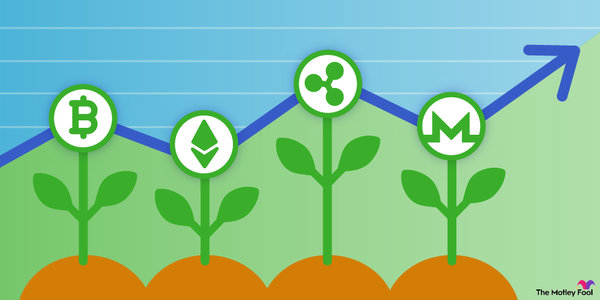
Cryptocurrencies have quickly become a hot investment that is gaining mainstream adoption. Markets for digital currencies such as Bitcoin (BTC -1.08%) were virtually unheard of in 2012, but they have since grown into a massive industry.
Image source: The Motley Fool.
The cryptocurrency sector reached a peak market value of $3 trillion in fall 2021. The sudden surge in value and rapid evolution created immense wealth for early crypto investors. As a result, there is huge interest in finding and investing in the next cryptocurrency unicorn.
With more than 20,000 different cryptocurrencies on the market — and the world having been pushed further into the digital realm by the COVID-19 pandemic — investing in technologies linking the digital blockchain space with society could be even more lucrative than guessing which token will become the next Bitcoin or Ethereum (ETH 0.84%). And there is no shortage of innovative companies trying to bridge the gap between the two.
Are they a good investment?
Digital currency companies hold major potential
The original idea behind blockchain technology — a digital ledger that automatically tracks transactions between parties and confirms ownership of a crypto asset — was to create a borderless, peer-to-peer electronic cash payment system that’s efficient and secure.
Investors can certainly purchase cryptos themselves, perhaps by buying small amounts of several different cryptocurrencies. But a better way to gain exposure to the sector is to invest in bigger and more established companies that benefit from the increased popularity of blockchain and crypto assets. The revenue that crypto service providers are deriving from blockchain tech has grown explosively over the past few years.
Companies that adopt blockchain technology, especially in finance, may gain a considerable edge over traditional competitors in processing payments. Brokers offering digital assets may attract more customers than exchanges offering traditional assets such as stocks and bonds.
You can even buy exchange-traded funds tracking the spot price of Bitcoin nowadays. Eleven such funds were approved in January 2024, and the most popular names include the iShares Bitcoin Trust (IBIT -1.56%) and the Fidelity Wise Origin Bitcoin Trust (FBTC -1.73%). The ETFs make Bitcoin easily available to several new investor types.
However, the sector is subject to sharp market swings. Its peak value of $3 trillion slipped to less than $1 trillion in June 2022 as rising inflation drove many investors away from high-risk investments. This was not the crypto market’s first gigantic plunge, and it probably won’t be the last. Every investment is subject to risks, and you should only invest money you don’t need in the short term. That guidance is even more important in the highly volatile crypto sector.
In keeping with that guidance, here are some of the best crypto and crypto-related stocks to consider.
Cardano (ADA)
A blockchain platform with a goal to make the world work better for everyone and redistribute power to the margins.
Coinbase
1. Coinbase Global
Coinbase Global (COIN -3.77%), a top cryptocurrency trading exchange, made its initial public offering (IPO) in April 2021. The company is a popular platform for purchasing major cryptocurrencies such as Bitcoin, Ethereum, and Cardano (ADA 0.18%), allowing users to trade more than 250 altcoins.
The Coinbase platform‘s success has been contingent on the increase in crypto prices, which, in turn, has led to millions of new users creating accounts. Coinbase earns a small transaction fee whenever someone buys or sells a cryptocurrency. But the company aspires to be more than just a place to trade. It also sponsors a debit card that allows consumers to spend from the balance in their digital wallet, and it’s launched a cloud platform for companies using and storing digital currencies.
Coinbase offers two game-changing innovations. The first is bringing the practice of asset loans — which were previously only available to affluent investors — to the masses. Users can pledge their Bitcoin or other cryptocurrencies as collateral and receive a low-interest loan to cover expenses. Using crypto as collateral means investors don’t have to sell their assets when emergencies arise, allowing their principal to continue compounding while they deal with matters at hand.
The second innovation is the rising adoption of Coinbase’s blockchain analytics by governments and financial institutions. Because most blockchains operate on a public ledger, the company can harness and monitor the data for illicit transactions and wallet addresses.
Suppose hackers managed to break through an individual’s computer and demand ransom in the form of Bitcoin to unlock the machine. In that case, Coinbase could then match the hacker’s wallet address with millions of know-your-customer (KYC) data points stored on its platform. This could help law enforcement track down the flow of funds and apprehend the cybercriminals — building greater trust in the crypto space.
All in all, investing in Coinbase is a broad bet on the crypto market. If crypto trading and ownership gain traction in the long run, Coinbase and its shareholders will benefit from the digital currency trend.
[Cryptocurrency] is a new asset class, but like real estate, there’s only so much Earth. So it’s defined, and therefore this moving price of the commodity is just how much, within this finite class of a commodity, this new asset class, how much people value it or want it.
David Gardner, co-founder, The Motley Fool.
Block and PayPal
2. Block and PayPal Holdings
At the heart of every digital payment protocol is the absence of central intermediaries (and therefore, lower costs for businesses and consumers). So, Block (SQ -1.45%) (formerly Square) and PayPal (PYPL 0.77%) saw a meaningful business opportunity in enabling users to purchase and hold cryptocurrencies within a digital wallet.
In late 2017, Block’s Cash App consumer-facing application began allowing Bitcoin trading. Bitcoin was a huge revenue generator for Block in 2020 and 2021, although the trading feature did little to help the company’s bottom line. In 2023, Block managed $2.56 billion of Bitcoin revenue at a gross profit of $86 million.
However, the company is helping to foster the use of Bitcoin among its business users (through the Block ecosystem), and it could become a top platform for crypto transactions between companies and their customers. This is especially promising for disrupting traditional international transactions in which banks often charge hefty foreign exchange fees. Cash App added support for the Bitcoin Lightning network in April 2022, allowing customers to transfer Bitcoin much faster and without transaction fees. CEO Jack Dorsey said the feature will “increase the usability of Bitcoin all toward an open global monetary transmission network the world can trust.”
PayPal’s Venmo digital wallet and peer-to-peer payments app, which unlocked crypto trading in early 2021, offer a similar mix of simple banking features and mass-market crypto-trading tools. At the launch, Venmo supported the trading of Bitcoin, Bitcoin Cash (BCH -2.15%), Ethereum, and Litecoin (LTC -1.35%). With the most users of any peer-to-peer money movement app, Venmo could become a leading cryptocurrency platform with its new feature. It serves as a solid access point for investors who wish to buy major cryptocurrencies and then use them to purchase altcoins or access decentralized finance (DeFi) applications.
Canaan and Hut 8
3. Canaan and Hut 8 Mining
Bitcoin mining has changed dramatically over the past few years. These days, companies such as Canaan (CAN -2.88%) design high-powered, application-specific integrated circuit (ASIC) machines specifically for the purpose of brute-force guessing correct hashes for proof-of-work cryptocurrencies. Canaan’s next-generation Avalon ASICs can make tens of trillions of guesses every second for the right hash to validate blocks on the Bitcoin network, which is millions of times more powerful than AMD (AMD 0.09%) and Nvidia‘s (NVDA -0.79%) latest graphics processing units (GPUs) for this hyperspecific purpose. Sales have been skyrocketing due to the device’s affordability and relatively low energy consumption, meaning greater profits for miners.
One of the most popular Bitcoin mining stocks is Hut 8 Mining (HUT -3.34%). The company, based in Canada, commands a sizable minority stake on the overall Bitcoin network, and it generates very strong cash flows compared to revenue. Instead of selling the Bitcoin it mines on the market, Hut 8 Mining maximizes returns for shareholders by lending them out and farming yields, leading to compounded returns. Investors can be assured that environmental concerns regarding the practice won’t hold the company back since it uses a mix of wind, solar, and natural gas sources for its electricity, with decade-long leases.
Nvidia and AMD
4. Nvidia and AMD
Chipmakers Nvidia and AMD don’t deal with cryptocurrencies directly, but the two semiconductor companies are the leading designers of graphics processing units (GPUs). Best known for powering high-end video game graphics, GPUs now enable computing-intensive applications such as data centers, artificial intelligence, and the creation of crypto assets.
Cryptography and blockchain creation require immense computational power, and GPUs are well suited for the job. Back in 2018, booming cryptocurrency prices were a driving force for Nvidia and AMD stock price increases as digital currency miners (people using their computers to create new units of digital assets) scrambled to purchase GPUs for the task. GPUs remain a fundamental piece of hardware for creating and managing crypto assets. Nvidia even launched a new lineup of chips specifically for crypto mining in early 2021.
Both Nvidia and AMD look to further cement their positions as leaders in chip technology through acquisitions. Nvidia tried to purchase ARM Holdings (ARM -0.17%), which licenses chip architecture design for data centers and smartphones, and AMD wanted to acquire field-programmable chip leader Xilinx. Nvidia had to give up on its ARM deal, but AMD completed the Xilinx buyout in February 2022. With or without the acquisitions, Nvidia and AMD are poised to continue taking market share of the semiconductor industry and are leading the way in developing more emerging technologies, such as blockchain ledgers.
Meta and Shopify
5. Meta Platforms and Shopify
Facebook parent Meta Platforms (META -0.05%) attempted to develop a new cryptocurrency called Diem (formerly Libra). Diem was envisioned as a global financial payment and infrastructure platform accessible to everyone, including almost one-third of the global population without bank accounts.
The project had some setbacks, including the loss of Visa (V 0.43%), Mastercard (MA 1.12%), and PayPal from its consortium of high-profile members. Government regulators expressed skepticism about Diem since cryptocurrency is still largely unregulated, and Meta eventually sold its control of Diem for $200 million. Nevertheless, work on the project is continuing under the new ownership, and Meta is reportedly considering different options for entering the cryptocurrency market. The company certainly wants to control part of the blockchain infrastructure behind its ambitious Metaverse vision.
E-commerce infrastructure and software provider Shopify (SHOP 1.04%) allows merchants using its platform to accept cryptocurrencies as payment. It recently deepened its capability by integrating with cryptocurrency payment processor CoinPayments. In the spring of 2020, Meta’s Facebook Shops was announced as a new offering for small business e-commerce, with Shopify as a third-party software provider powering the new online stores. Together, Meta and Shopify are primed to benefit if the adoption of digital assets continues among small businesses and entrepreneurs.
Robinhood
6. Robinhood Markets
Robinhood Markets (HOOD -4.3%) is a popular discount brokerage app that allows users to buy stocks, options, rare metals, and now, cryptocurrencies. Investors can buy and sell more than a dozen cryptocurrencies, including Bitcoin, Ethereum, and Dogecoin (DOGE 0.37%), commission-free on the platform, 24/7. The company already holds billions of dollars in crypto assets under custody, with crypto trading revenue now comprising a significant portion of overall sales.
Robinhood can combine its commission-free model with scaling the number of cryptocurrencies on the platform, gaining a massive competitive advantage over both traditional and decentralized exchanges. The company also could offer the same crypto analytics services as Coinbase to further promote trust in the sector and boost its adoption.
Bitcoin Cash (BCH)
Structurally very similar to Bitcoin but with small adjustments, Bitcoin Cash is designed to be the digital equivalent of cash.
CME Group
7. CME Group
CME Group (CME -0.94%) operates the world’s largest financial derivatives exchange, allowing investors to trade futures, which bet on the future price of an asset, and options, which grant investors the option to sell or buy an asset in the future at a predetermined price. CME Group’s exchange trades a diverse assortment of assets, including agricultural and mining products, energy, stocks, and currencies. It’s the latter that makes CME Group a crypto stock.
At the end of 2017, CME established the first market for Bitcoin futures. At the start of 2020, the company created a market for options on Bitcoin futures. As of March 2022, Ether (units of the crypto platform Ethereum) also had futures available on the exchange. Both Ether and Bitcoin futures were joined by micro futures this year, based on smaller slices of the underlying cryptocurrencies.
Establishing a full-featured exchange for derivatives of the best-known cryptocurrencies has given Bitcoin and Ethereum some extra legitimacy and provided a way for digital currency owners (both individuals and a growing list of businesses that accept cryptocurrencies as payment) to mitigate risk from changes in cryptocurrency prices. Cryptocurrency derivatives are still a small market for CME Group, but adding more exchanges for crypto assets in the future is possible — and even likely.
Related crypto topics
Crypto’s mainstream adoption
The beauty of crypto stocks
The best part about cryptocurrency stocks is that most of them are not pure plays on the industry, so investors have the reward of ample diversification. Cryptocurrencies are quite volatile and can cause wild swings in the revenue and earnings of companies with sector exposure.
The crypto realm is rapidly gaining mainstream adoption. In August 2021, United Wholesale Mortgage (UWMC -0.54%), the second-largest mortgage lender in the U.S., announced it would accept Bitcoin to settle mortgage payments from its customers. Expect further momentum in crypto stocks as more companies join in the blockchain revolution.
At the same time, you need to keep an eye on the evolving regulatory framework while the crypto market adapts to the ever-changing global economy. The stocks mentioned above are smart investments in digital currencies, and most of them come with the benefit of also running significant business operations outside the crypto sector. As such, many investors find that they make more sense than buying the cryptocurrencies themselves, at least until regulators and governments around the world have nailed down their long-term approach to digital assets.
Randi Zuckerberg, a former director of market development and spokeswoman for Facebook and sister to Meta Platforms CEO Mark Zuckerberg, is a member of The Motley Fool’s board of directors. Anders Bylund has positions in Bitcoin, Cardano, Coinbase Global, Ethereum, and Nvidia. The Motley Fool has positions in and recommends Advanced Micro Devices, Bitcoin, Block, Cardano, Coinbase Global, Ethereum, Mastercard, Meta Platforms, Nvidia, PayPal, Shopify, and Visa. The Motley Fool recommends CME Group and recommends the following options: long January 2025 $370 calls on Mastercard, short January 2025 $380 calls on Mastercard, and short June 2024 $67.50 calls on PayPal. The Motley Fool has a disclosure policy.
Tech
Harvard Alumni, Tech Moguls, and Best-Selling Authors Drive Nearly $600 Million in Pre-Order Sales
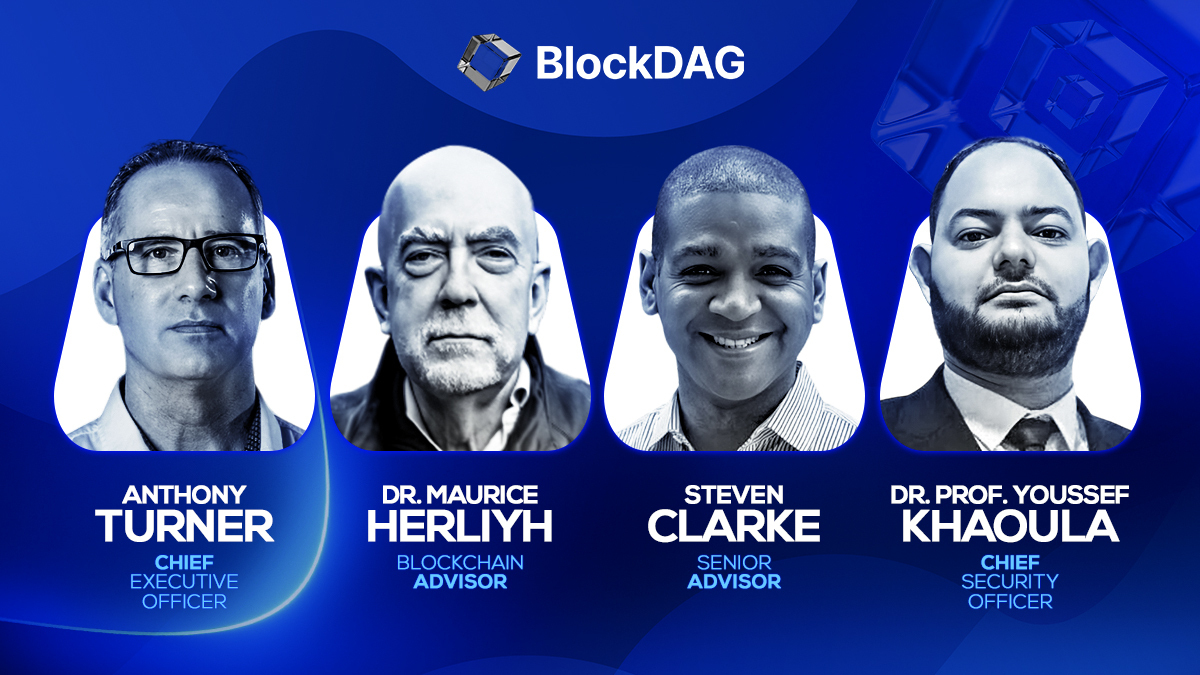
BlockDAG Network’s history is one of innovation, perseverance, and a vision to push the boundaries of blockchain technology. With Harvard alumni, tech moguls, and best-selling authors at the helm, BlockDAG is rewriting the rules of the cryptocurrency game.
CEO Antony Turner, inspired by the successes and shortcomings of Bitcoin and Ethereum, says, “BlockDAG leverages existing technology to push the boundaries of speed, security, and decentralization.” This powerhouse team has led a staggering 1,600% price increase in 20 pre-sale rounds, raising over $63.9 million. The secret? Unparalleled expertise and a bold vision for the future of blockchain.
Let’s dive into BlockDAG’s success story and find out what the future holds for this cryptocurrency.
The Origin: Why BlockDAG Was Created
In a recent interview, BlockDAG CEO Antony Turner perfectly summed up why the market needs BlockDAG’s ongoing revolution. He said:
“The creation of BlockDAG was inspired by Bitcoin and Ethereum, their successes and their shortcomings.
If you look at almost any new technology, it is very rare that the first movers remain at the forefront forever. Later incumbents have a huge advantage in entering a market where the need has been established and the technology is no longer cutting edge.
BlockDAG has done just that: our innovation is incorporating existing technology to provide a better solution, allowing us to push the boundaries of speed, security, and decentralization.”
The Present: How Far Has BlockDAG Come?
BlockDAG’s presale is setting new benchmarks in the cryptocurrency investment landscape. With a stunning 1600% price increase over 20 presale lots, it has already raised over $63.9 million in capital, having sold over 12.43 billion BDAG coins.
This impressive performance underscores the overwhelming confidence of investors in BlockDAG’s vision and leadership. The presale attracted over 20,000 individual investors, with the BlockDAG community growing exponentially by the hour.

These monumental milestones have been achieved thanks to the unparalleled skills, experience and expertise of BlockDAG’s management team:
Antony Turner – Chief Executive Officer
Antony Turner, CEO of BlockDAG, has over 20 years of experience in the Fintech, EdTech, Travel and Crypto industries. He has held senior roles at SPIRIT Blockchain Capital and co-founded Axona-Analytics and SwissOne. Antony excels in financial modeling, business management and scaling growth companies, with expertise in trading, software, IoT, blockchain and cryptocurrency.
Director of Communications
Youssef Khaoulaj, CSO of BlockDAG, is a Smart Contract Auditor, Metaverse Expert, and Red Team Hacker. He ensures system security and disaster preparedness, and advises senior management on security issues.

advisory Committee
Steven Clarke-Martin, a technologist and consultant, excels in enterprise technology, startups, and blockchain, with a focus on DAOs and smart contracts. Maurice Herlihy, a Harvard and MIT graduate, is an award-winning computer scientist at Brown University, with experience in distributed computing and consulting roles, most notably at Algorand.
The Future: Becoming the Cryptocurrency with the Highest Market Cap in the World
Given its impressive track record and a team of geniuses working tirelessly behind the scenes, BlockDAG is quickly approaching the $600 million pre-sale milestone. This crypto powerhouse will soon enter the top 30 cryptocurrencies by market cap.
Currently trading at $0.017 per coin, BlockDAG is expected to hit $1 million in the coming months, with the potential to hit $30 per coin by 2030. Early investors have already enjoyed a 1600% ROI by batch 21, fueling a huge amount of excitement around BlockDAG’s presale. The platform is seeing significant whale buying, and demand is so high that batch 21 is almost sold out. The upcoming batch is expected to drive prices even higher.

Invest in BlockDAG Pre-Sale Now:
Pre-sale: https://purchase.blockdag.network
Website: https://blockdag.network
Telegram: https://t.me/blockDAGnetwork
Discord: Italian: https://discord.gg/Q7BxghMVyu
No spam, no lies, just insights. You can unsubscribe at any time.
Tech
How Karak’s Latest Tech Integration Could Make Data Breaches Obsolete
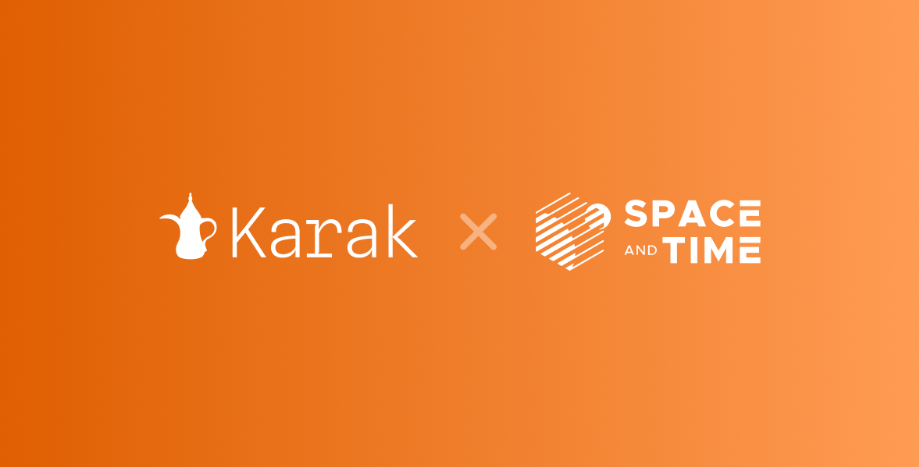
- Space and Time uses zero-knowledge proofs to ensure secure and tamper-proof data processing for smart contracts and enterprises.
- The integration facilitates faster development and deployment of Distributed Secure Services (DSS) on the Karak platform.
Karak, a platform known for its strong security capabilities, is enhancing its Distributed Secure Services (DSS) by integrating Space and Time as a zero-knowledge (ZK) coprocessor. This move is intended to strengthen trustless operations across its network, especially in slashing and rewards mechanisms.
Space and Time is a verifiable processing layer that uses zero-knowledge proofs to ensure that computations on decentralized data warehouses are secure and untampered with. This system enables smart contracts, large language models (LLMs), and enterprises to process data without integrity concerns.
The integration with Karak will enable the platform to use Proof of SQL, a new ZK-proof approach developed by Space and Time, to confirm that SQL query results are accurate and have not been tampered with.
One of the key features of this integration is the enhancement of DSS on Karak. DSS are decentralized services that use re-staked assets to secure the various operations they provide, from simple utilities to complex marketplaces. The addition of Space and Time technology enables faster development and deployment of these services, especially by simplifying slashing logic, which is critical to maintaining security and trust in decentralized networks.
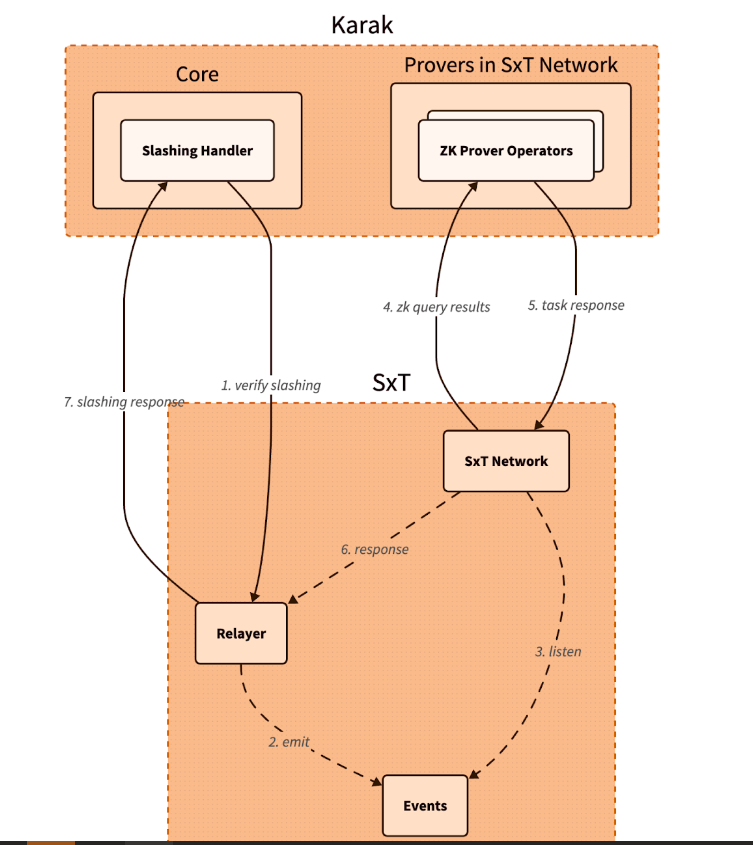
Additionally, Space and Time is developing its own DSS for blockchain data indexing. This service will allow community members to easily participate in the network by running indexing nodes. This is especially beneficial for applications that require high security and decentralization, such as decentralized data indexing.
The integration architecture follows a detailed and secure flow. When a Karak slashing contract needs to verify a SQL query, it calls the Space and Time relayer contract with the required SQL statement. This contract then emits an event with the query details, which is detected by operators in the Space and Time network.
These operators, responsible for indexing and monitoring DSS activities, validate the event and route the work to a verification operator who runs the query and generates the necessary ZK proof.
The result, along with a cryptographic commitment on the queried data, is sent to the relayer contract, which verifies and returns the data to the Karak cutter contract. This end-to-end process ensures that the data used in decision-making, such as determining penalties within the DSS, is accurate and reliable.
Karak’s mission is to provide universal security, but it also extends the capabilities of Space and Time to support multiple DSSs with their data indexing needs. As these technologies evolve, they are set to redefine the secure, decentralized computing landscape, making it more accessible and efficient for developers and enterprises alike. This integration represents a significant step towards a more secure and verifiable digital infrastructure in the blockchain space.
Website | X (Twitter) | Discord | Telegram
No spam, no lies, just insights. You can unsubscribe at any time.
Tech
Cryptocurrency Payments: Should CFOs Consider This Ferrari-Approved Trend?

Iconic Italian luxury carmaker Ferrari has announced the expansion of its cryptocurrency payment system to its European dealer network.
The move, which follows a successful launch in North America less than a year ago, raises a crucial question for CFOs across industries: Is it time to consider accepting cryptocurrency as a form of payment for your business?
Ferrari’s move isn’t an isolated one. It’s part of a broader trend of companies embracing digital assets. As of 2024, we’re seeing a growing number of companies, from tech giants to traditional retailers, accepting cryptocurrencies.
This change is determined by several factors:
- Growing mainstream adoption of cryptocurrencies
- Growing demand from tech-savvy and affluent consumers
- Potential for faster and cheaper international transactions
- Desire to project an innovative brand image
Ferrari’s approach is particularly noteworthy. They have partnered with BitPay, a leading cryptocurrency payment processor, to allow customers to purchase vehicles using Bitcoin, Ethereum, and USDC. This satisfies their tech-savvy and affluent customer base, many of whom have large digital asset holdings.
Navigating Opportunities and Challenges
Ferrari’s adoption of cryptocurrency payments illustrates several key opportunities for companies considering this move. First, it opens the door to new customer segments. By accepting cryptocurrency, Ferrari is targeting a younger, tech-savvy demographic—people who have embraced digital assets and see them as a legitimate form of value exchange. This strategy allows the company to connect with a new generation of affluent customers who may prefer to conduct high-value transactions in cryptocurrency.
Second, cryptocurrency adoption increases global reach. International payments, which can be complex and time-consuming with traditional methods, become significantly easier with cryptocurrency transactions. This can be especially beneficial for businesses that operate in multiple countries or deal with international customers, as it potentially reduces friction in cross-border transactions.
Third, accepting cryptocurrency positions a company as innovative and forward-thinking. In today’s fast-paced business environment, being seen as an early adopter of emerging technologies can significantly boost a brand’s image. Ferrari’s move sends a clear message that they are at the forefront of financial innovation, which can appeal to customers who value cutting-edge approaches.
Finally, there is the potential for cost savings. Traditional payment methods, especially for international transactions, often incur substantial fees. Cryptocurrency transactions, on the other hand, can offer lower transaction costs. For high-value purchases, such as luxury cars, these savings could be significant for both the business and the customer.
While the opportunities are enticing, accepting cryptocurrency payments also presents significant challenges that businesses must address. The most notable of these is volatility. Cryptocurrency values can fluctuate dramatically, sometimes within hours, posing potential risk to businesses that accept them as payment. Ferrari addressed this challenge by implementing a system that instantly converts cryptocurrency received into traditional fiat currencies, effectively mitigating the risk of value fluctuations.
Regulatory uncertainty is another major concern. The legal landscape surrounding cryptocurrencies is still evolving in many jurisdictions around the world. This lack of clear and consistent regulations can create compliance challenges for companies, especially those operating internationally. Companies must remain vigilant and adaptable as new laws and regulations emerge, which can be a resource-intensive process.
Implementation costs are also a significant obstacle. Integrating cryptocurrency payment systems often requires substantial investment in new technology infrastructure and extensive staff training. This can be especially challenging for small businesses or those with limited IT resources. The costs are not just financial; a significant investment of time is also required to ensure smooth implementation and operation.
Finally, security concerns loom large in the world of cryptocurrency transactions. While blockchain technology offers some security benefits, cryptocurrency transactions still require robust cybersecurity measures to protect against fraud, hacks, and other malicious activity. Businesses must invest in robust security protocols and stay up-to-date on the latest threats and protections, adding another layer of complexity and potential costs to accepting cryptocurrency payments.
Strategic Considerations for CFOs
If you’re thinking of following in Ferrari’s footsteps, here are the key factors to consider:
- Risk Assessment: Carefully evaluate potential risks to your business, including financial, regulatory, and reputational risks.
- Market Analysis: Evaluate whether your customer base is significantly interested in using cryptocurrencies for payments.
- Technology Infrastructure: Determine the costs and complexities of implementing a cryptographic payment system that integrates with existing financial processes.
- Regulatory Compliance: Ensure that cryptocurrency acceptance is in line with local regulations in all markets you operate in. Ferrari’s gradual rollout demonstrates the importance of this consideration.
- Financial Impact: Analyze how accepting cryptocurrency could impact your cash flow, accounting practices, and financial reporting.
- Partnership Evaluation: Consider partnering with established crypto payment processors to reduce risk and simplify implementation.
- Employee Training: Plan comprehensive training to ensure your team is equipped to handle cryptocurrency transactions and answer customer questions.
While Ferrari’s adoption of cryptocurrency payments is exciting, it’s important to consider this trend carefully.
A CFO’s decision to adopt cryptocurrency as a means of payment should be based on a thorough analysis of your company’s specific needs, risk tolerance, and strategic goals. Cryptocurrency payments may not be right for every business, but for some, they could provide a competitive advantage in an increasingly digital marketplace.
Remember that the landscape is rapidly evolving. Stay informed about regulatory changes, technological advancements, and changing consumer preferences. Whether you decide to accelerate your crypto engines now or wait in the pit, keeping this payment option on your radar is critical to navigating the future of business transactions.
Was this article helpful?
Yes No
Sign up to receive your daily business insights
Tech
Bitcoin Tumbles as Crypto Market Selloff Mirrors Tech Stocks’ Plunge
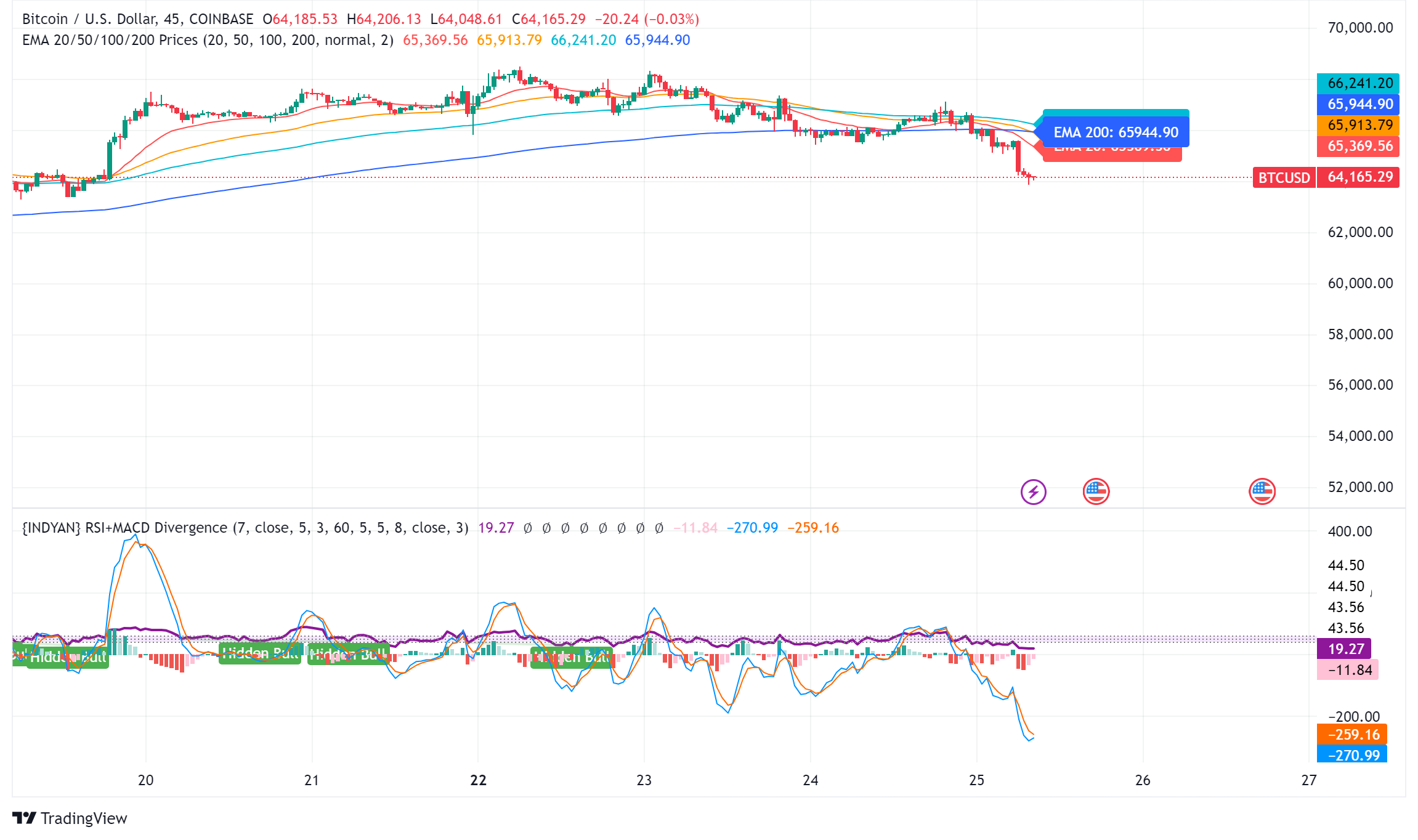
The world’s largest cryptocurrency, Bitcoin (BTC), suffered a significant price decline on Wednesday, falling below $65,000. The decline coincides with a broader market sell-off that has hit technology stocks hard.
Cryptocurrency Liquidations Hit Hard
CoinGlass data reveals a surge in long liquidations in the cryptocurrency market over the past 24 hours. These liquidations, totaling $220.7 million, represent forced selling of positions that had bet on price increases. Bitcoin itself accounted for $14.8 million in long liquidations.
Ethereum leads the decline
Ethereal (ETH), the second-largest cryptocurrency, has seen a steeper decline than Bitcoin, falling nearly 8% to trade around $3,177. This decline mirrors Bitcoin’s price action, suggesting a broader market correction.
Cryptocurrency market crash mirrors tech sector crash
The cryptocurrency market decline appears to be linked to the significant losses seen in the U.S. stock market on Wednesday. Stock market listing The index, heavily weighted toward technology stocks, posted its sharpest decline since October 2022, falling 3.65%.
Analysts cite multiple factors
Several factors may have contributed to the cryptocurrency market crash:
- Tech earnings are underwhelming: Earnings reports from tech giants like Alphabet are disappointing (Google(the parent company of), on Tuesday, triggered a sell-off in technology stocks with higher-than-expected capital expenditures that could have repercussions on the cryptocurrency market.
- Changing Political Landscape: The potential impact of the upcoming US elections and changes in Washington’s policy stance towards cryptocurrencies could influence investor sentiment.
- Ethereal ETF Hopes on the line: While bullish sentiment around a potential U.S. Ethereum ETF initially boosted the market, delays or rejections could dampen enthusiasm.
Analysts’ opinions differ
Despite the short-term losses, some analysts remain optimistic about Bitcoin’s long-term prospects. Singapore-based cryptocurrency trading firm QCP Capital believes Bitcoin could follow a similar trajectory to its post-ETF launch all-time high, with Ethereum potentially converging with its previous highs on sustained institutional interest.
Rich Dad Poor Dad Author’s Prediction
Robert Kiyosaki, author of the best-selling Rich Dad Poor Dad, predicts a potential surge in the price of Bitcoin if Donald Trump is re-elected as US president. He predicts a surge to $105,000 per coin by August 2025, fueled by a weaker dollar that is set to boost US exports.
BTC/USD Technical Outlook
Bitcoin price is currently trading below key support levels, including the $65,500 level and the 100 hourly moving average. A break below the $64,000 level could lead to further declines towards the $63,200 support zone. However, a recovery above the $65,500 level could trigger another increase in the coming sessions.
-

 Videos1 month ago
Videos1 month agoAbsolutely massive: the next higher Bitcoin leg will shatter all expectations – Tom Lee
-

 News12 months ago
News12 months agoVolta Finance Limited – Director/PDMR Shareholding
-

 News12 months ago
News12 months agoModiv Industrial to release Q2 2024 financial results on August 6
-

 News12 months ago
News12 months agoApple to report third-quarter earnings as Wall Street eyes China sales
-

 News12 months ago
News12 months agoNumber of Americans filing for unemployment benefits hits highest level in a year
-

 News1 year ago
News1 year agoInventiva reports 2024 First Quarter Financial Information¹ and provides a corporate update
-

 News1 year ago
News1 year agoLeeds hospitals trust says finances are “critical” amid £110m deficit
-

 Markets1 year ago
Markets1 year agoWhale Investments in Bitcoin Hit $100 Billion in 2024, Fueling Insane Investor Optimism ⋆ ZyCrypto
-

 DeFi1 year ago
DeFi1 year ago🏴☠️ Pump.Fun operated by Insider Exploit
-

 Videos1 year ago
Videos1 year ago$1,000,000 worth of BTC in 2025! Get ready for an UNPRECEDENTED PRICE EXPLOSION – Jack Mallers
-

 Videos1 year ago
Videos1 year agoABSOLUTELY HUGE: Bitcoin is poised for unabated exponential growth – Mark Yusko and Willy Woo
-

 Tech1 year ago
Tech1 year agoBlockDAG ⭐⭐⭐⭐⭐ Review: Is It the Next Big Thing in Cryptocurrency? 5 questions answered





